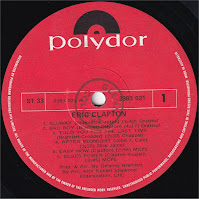Rainbow was formed in 1975 by Deep Purple's guitarist - Ritchie Blackmore. The band lasted from 1975-1984 and then 1994-1997. The reason there was a sizeable gap between the years is because in 1984 Deep Purple had reunited to record Perfect Strangers and The House of Blue Light. Unfortunately, old tensions never die. Ritchie Blackmore and singer Ian Gillan once again started fighting. This went on until about the early 1990s.
In 1974, Ritchie Blackmore publicly announced his dislike of the funk/soul (or as Blackmore called it, "shoeshine music") elements being introduced to Deep Purple by David Coverdale and Glenn Hughes, as well as the disappointing Stormbringer album where his favourite musical style wasn't adequately captured. Blackmore originally intended to release a solo single, the Steve Hammond-penned "Black Sheep of the Family", with "Sixteenth Century Greensleeves" on the B-side.
He recorded these during a studio session in Tampa Bay, Florida on 12th December 1974 with singer/lyricist Ronnie James Dio and drummer Gary Driscoll from the blues-rock band Elf, former Procol Harum keyboardist Matthew Fisher, and cellist Hugh McDowell of ELO. Satisfied with the two tracks, Blackmore decided to make a solo album, replacing the keyboardist and bassist with Elf members Mickey Lee Soule and Craig Gruber, respectively.
A full album was recorded in Musicland Studios, Munich, Germany in about 3 weeks in February 1975. And, of course, Blackmore got his cover song "Black Sheep of the Family" on this album. Though it was originally thought to be a solo album, the record was billed as Ritchie Blackmore's R-A-I-N-B-O-W. Blackmore finally decided to leave Deep Purple and form his own band 'Rainbow'. The name of the band was inspired by the Rainbow Bar and Grill in Hollywood that catered to rock stars, groupies and rock enthusiasts.
Rainbow's debut album also featured the minor hit "Man on the Silver Mountain". This first line-up never performed live. Blackmore and Dio did all the promotional work for the album.
 |
| Ritchie Blackmore (Guitar) |
Rainbow's music was partly inspired by classical music since Blackmore started playing cello to help him construct interesting chord progressions, and Dio wrote lyrics about medieval themes. Dio possessed a versatile vocal range capable of singing both hard rock and lighter ballads. Although Dio never played a musical instrument on any Rainbow album, he is credited with writing and arranging the music with Blackmore, in addition to writing all the lyrics himself.
Ritchie Blackmore’s R-A-I-N-B-O-W entered the US chart at No.79 on September 6, and went as high as No.30 in a 15-week run. Two weeks after that debut, the album peaked at No.11 in the UK, on its way to silver certification from trade body the BPI. By the autumn, the new band were on the road with Blackmore at the helm, as they grew into one of the big new rock names of 1975.
Ritchie Blackmore’s R-A-I-N-B-O-W entered the US chart at No.79 on September 6, and went as high as No.30 in a 15-week run. Two weeks after that debut, the album peaked at No.11 in the UK, on its way to silver certification from trade body the BPI. By the autumn, the new band were on the road with Blackmore at the helm, as they grew into one of the big new rock names of 1975.
 |
| Ronnie James Dio (Vocals) |
Album Review
(by Christian Collins at Metal-Archives.com)
Ritchie Blackmore's Rainbow is an instant classic, as they say. The opener "Man on the Silver Mountain"', is a catchy song with a crunching Blackmore riff reminiscent of 'Smoke on the Water.' This song will always be a favorite of mine. Even near the beginning of Dio's career, his voice is so strong, developed, and articulate. You can tell Blackmore is having fun with this album because it's just so enjoyable. The union of Dio's voice and Blackmore's riffs and neoclassical style is just magical. The next track, "Self Portrait", is another great song. The way Dio shouts, 'DOWN!' and leads into the guitar solo is amazing. Next comes the cover, "Black Sheep of the Family" It's a shame Blackmore's idea was rejected by Deep Purple, I can totally picture Coverdale and Hughes harmonizing the lyrics to this song. However, I am ever grateful for the Rainbow project, and the Blackmore-Dio union. This is a great song, and Rainbow does it justice.
(by Christian Collins at Metal-Archives.com)
Ritchie Blackmore's Rainbow is an instant classic, as they say. The opener "Man on the Silver Mountain"', is a catchy song with a crunching Blackmore riff reminiscent of 'Smoke on the Water.' This song will always be a favorite of mine. Even near the beginning of Dio's career, his voice is so strong, developed, and articulate. You can tell Blackmore is having fun with this album because it's just so enjoyable. The union of Dio's voice and Blackmore's riffs and neoclassical style is just magical. The next track, "Self Portrait", is another great song. The way Dio shouts, 'DOWN!' and leads into the guitar solo is amazing. Next comes the cover, "Black Sheep of the Family" It's a shame Blackmore's idea was rejected by Deep Purple, I can totally picture Coverdale and Hughes harmonizing the lyrics to this song. However, I am ever grateful for the Rainbow project, and the Blackmore-Dio union. This is a great song, and Rainbow does it justice.
 |
| Craig Gruber (Bass) |
Next comes, "Catch the Rainbow". This track is the softest on the album, but it's one of the best, maybe the best. Nope, it is the best. Especially listening to this song more than a decade since Dio's passing... almost brings a tear to my eye.
And sail away on ships of wonder
But life's not a wheel
With chains made of steel
So bless me, oh, bless me, bless me
Come the dawn...
Such a beautiful song. Just pure bliss for me. Slow and melodic guitar parts, and Dio matches it well. Some may think it goes on a little too long towards the end and kind of peters out, but I love that part. It just adds to the song's beauty. Moving on to "Snake Charmer" (which was by the way the B-side to the single "Man On The Silver Maountain". This song is a great example of Blackmore's eastern playing style. This would fit right in on the "Long Live Rock 'N' Roll" album that would come three years later. Very upbeat song, similar to "Black Sheep of the Family", but I don't like this one as much. Still a great song in my opinion. The next song "The Temple of the King", seems to appeal to a lot of fans. I tend to agree, but a bit overrated I'd say. It's another slow song, and it's acoustic. Very stripped down, and displays the fantasy/medieval lyrics of Dio, which will continue to be ever present in Dio's career. The song builds up very nicely, and is well crafted overall.
Then comes "If You Don't Like Rock N Roll". This is a very short piano rock tune, that seems like they pulled from an Elf album, but they didn't. I'd prefer a lot of Elf's music over this song. This hurts the album slightly as it's the only song that isn't up to scratch. It can still be enjoyable, but it kind of goes against the mood of the album. Next is "Sixteenth Century Greensleeves". This is definitely one of my favorites in Rainbow's discography. So much emotion on Dio's voice, the guitars riffs are haunting, and the solo is magical and fits the mood of the song so well. This songs builds up so well, however, I wish it didn't fade out. It deserves a proper ending.
No more night
We have seen the light
Let it shine on bright
Hang him HIGHER, HIGHER
Put a man on the fire
Drawbridge down
Cut it to the ground
We're going to dance around the fire
The FIRE, FIRE
The last song, "Still I'm Sad" is an instrumental and is a Yardbirds cover. It's a great tune. Not much to say, but Blackmore does a great job of making it very epic with his unique playing. When Blackmore revived the project in 1995 and released "Stranger in Us All", he rereleased the song, but with lyrics. I recommend that version.
Well that's it, a review of one of my favorite albums of one of my favorite bands. The Blackmore-Dio combo is truly amazing, and the other musicians from Elf did an adequate job of supporting, but they are no Cozy Powell or Jimmy Bain. Just listen to their next album "Rising". Truly a masterpiece.
And sail away on ships of wonder
But life's not a wheel
With chains made of steel
So bless me, oh, bless me, bless me
Come the dawn...
 |
| Mickey Lee Soule |
Then comes "If You Don't Like Rock N Roll". This is a very short piano rock tune, that seems like they pulled from an Elf album, but they didn't. I'd prefer a lot of Elf's music over this song. This hurts the album slightly as it's the only song that isn't up to scratch. It can still be enjoyable, but it kind of goes against the mood of the album. Next is "Sixteenth Century Greensleeves". This is definitely one of my favorites in Rainbow's discography. So much emotion on Dio's voice, the guitars riffs are haunting, and the solo is magical and fits the mood of the song so well. This songs builds up so well, however, I wish it didn't fade out. It deserves a proper ending.
No more night
We have seen the light
Let it shine on bright
Hang him HIGHER, HIGHER
Put a man on the fire
Drawbridge down
Cut it to the ground
We're going to dance around the fire
The FIRE, FIRE
 |
| Gary Driscoll |
Well that's it, a review of one of my favorite albums of one of my favorite bands. The Blackmore-Dio combo is truly amazing, and the other musicians from Elf did an adequate job of supporting, but they are no Cozy Powell or Jimmy Bain. Just listen to their next album "Rising". Truly a masterpiece.
The artwork for this album is very cool and fitting for the music, but it's so vintage, it hurts my eyes. The album marks the birth of Dio's career. I don't quite count Elf or his previous bands, though I do enjoy the three albums they released, particularly their first. What an amazing start.
R.I.P. Ronnie James Dio (1942-2010)
R.I.P. Ronnie James Dio (1942-2010)
It was my intention to include a recording of Rainbow's first single as a 'bonus track', because the 45 label indicates the track length to be 3:54min long, and shorter than the album version which is 4:33min. (see label scan left)
However, after ripping the single I discovered that the length of the single is in fact the same as the album release - so there is no difference.
Perhaps a typo mistake during the pressing process OR maybe it was done on purpose, to trick the radio stations into thinking it was shorter, so they would be more likely to play it.
I've had this single for nearly 50 years and never noticed this discrepancy !
This post consists of FLACS ripped from my gatefold vinyl (U.S pressing) and includes full album artwork for CD and vinyl and label scans. Sadly my copy was released on the Polydor label and not the 'cooler' Oyster label (shown below). But I'm still happy to own this album. I have most of the Rainbow collection on vinyl and it is my intention to post these in the future, especially 'Rising' and 'On Stage'.
Tracklisting:
01 Man On The Silver Mountain 4:33
02 Self Portrait 3:16
03 Black Sheep Of The Family 3:20
04 Catch The Rainbow 6:40
05 Snake Charmer 4:30
06 Temple Of The King 4:46
07 If You Don't Like Rock n' Roll 2:36
08 Sixteenth Century Greensleeves 3:35
09 Still I'm Sad 3:53
Ritchie Blackmore - Guitar
Ronnie James Dio - Vocals
Gary Driscoll - Drums
Craig Gruber - Bass
Mickey Lee Soule - Paino, Mellotron, Clavinet & Organ
Ritchie Blackmore's Rainbow Link (205Mb)


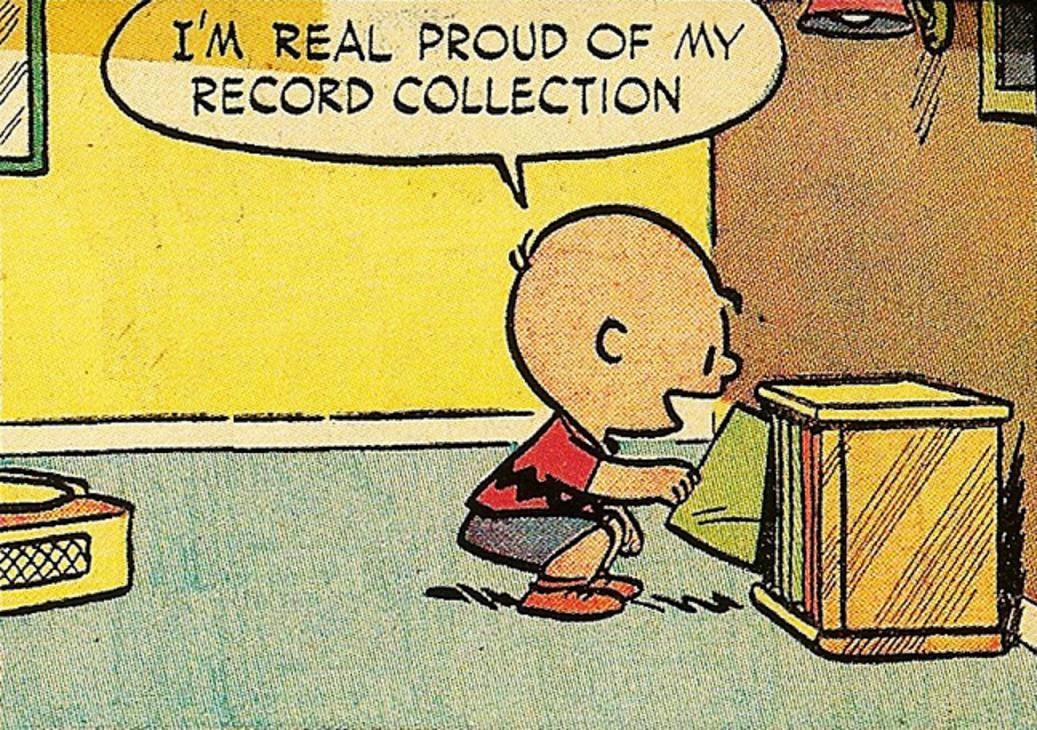

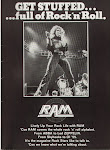
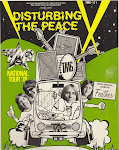
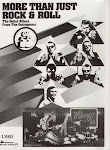
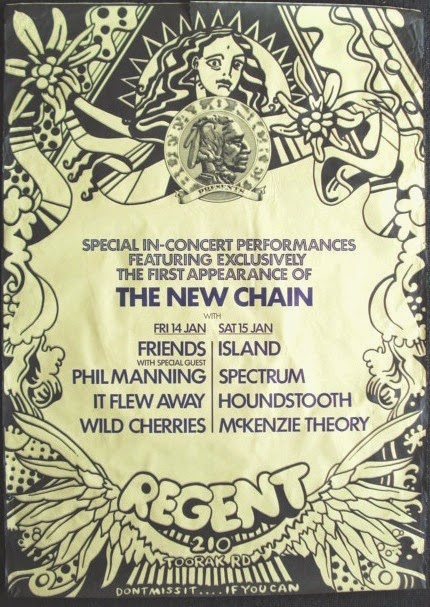















.jpg)






,%20Texas.%20With%20Leland%20Sklaar%20and%20Gil%20Matthews.jpg)






















